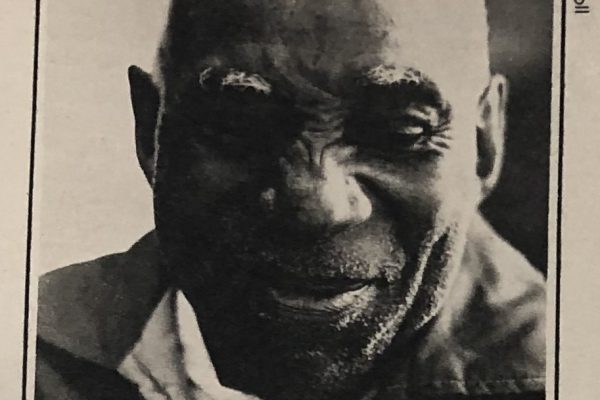Original Publication; Newsweek, November 26, 1973
It’s taken Charlie Rich fifteen long hard years to become a star. His admirers call him the Silver Fox or the white Ray Charles, but his strong smooth voice defies all classification. Sometimes he croons country, sometimes he rocks. He’s a natural at the blues. And he can handle pop. He is, in the words of his friend Kris Kristofferson’s song, “a walking contradiction, partly truth and partly fiction.” But now, after almost two painful decades of alternating bouts with booze and the Bible, Charlie Rich has found his place. He is emerging as one country singer who can score big on all the pop charts.
This year Rich’s hit single, “Behind Closed Doors,” was banned on a number of country stations because of its sensual lyrics (its most shocking lines are, “She makes me glad that I’m a man,/Oh no one knows what goes on behind closed doors”). It was one of the few country songs of 1973 to “cross-over” and become a pop hit, giving Rich a million-selling record. “Behind Closed Doors” won the Country Music Association award for best record of the year, and Rich was named country’s best male vocalist. The accolades, coming after years of playing the blues at raunchy roadhouses where “the drunker you got the better you were,” seemed sweet indeed.
Sexier: At 6 feet 2 inches and 250 pounds, the 40-year-old Rich is a huge man, silver-haired and languid. Hunched over the piano with his big hands smothering the keyboard, he looks like the world-weary veteran of the honky-tonks that he is, but the music he makes is stylistically sophisticated and varied. He can sound sexier than Sinatra on “Nice ‘n’ Easy” or tortured on “A Woman Left Lonely.” Rich himself often appears to be tortured. “I don’t really like happy music,” he says. “I don’t think it says anything.”
Rich grew up in rural Arkansas, the son of strict Gospel-singing Baptist parents. His family never approved of playing for money – not to mention dancing. “Dancing was considered a sin because of the places you went to dance,” Rich recently told NEWSWEEK’s Kent Biffle, “and judging from some of the honky-tonks where we were playing, I could see where they got the idea.”
He began his recording career on the legendary Sun label in Memphis. Sun was owned by Sam Phillips, who had discovered and signed Elvis Presley, Johnny Cash, Jerry Lee Lewis, Carl Perkins, Roy Orbison – the most glittering array of talent on one label in the early days of rock ‘n’ roll. Phillips once said Rich was the only singer he knew who had the talent to rival the success of Elvis. Ironically, when Margaret Ann Rich, Charlie’s wife and a country songwriter herself, left their farm and trudged into Sun with some of Charlie’s tapes, she was told he played too well.
Although Rich had one hit with Sun, “Lonely Weekends,” which he also wrote, he feels he never got much support from the label. “Sam Phillips had gotten wealthy,” says Rich, “and was more interested in Holiday Inn stock than the record business.” Many years, several recording contracts, and almost twenty albums later, Rich was still a loser. “I did one song,” he recalls bemusedly, “Johnny Rivers cut it just like I did, and it sold a million records. Wanna hear some more mistakes?”
Booster: Rich admits to finding some consolation in the bottle. “I think a guy who’s had just the right amount of gin can sing the blues a hell of a lot better than a guy who is stone sober,” he says. Maybe, but things got bad enough at one point that Margaret Ann, always Charlie’s biggest booster, packed their three children and left. When they made up a month later she had to help him sneak out of the YMCA because he couldn’t afford to pay the bill.
Things finally changed when Rich landed on the Epic label, with its heads-up promotion man, Bill Williams, and country’s hottest commercial producer, Billy Sherrill. Sherrill says that Rich didn’t hit before because he didn’t’ have the right material and that rock fans are fickle. “They’re the worst in the world for being loyal,” says Sherrill. “Country fans stay with you.” At the moment Rich doesn’t even need that down-home loyalty. His latest release, “The Most Beautiful Girl,” is one of the fastest-rising songs on the pop charts; Rich is commanding $5,000 a night on his first long tour away from home, and he’s not even drinking. “I don’t think I need gin any more to sing the blues,” says Carlie. Success is intoxicating enough.
This article is typed from the original material. Please excuse any errors that have escaped final proofreading.


